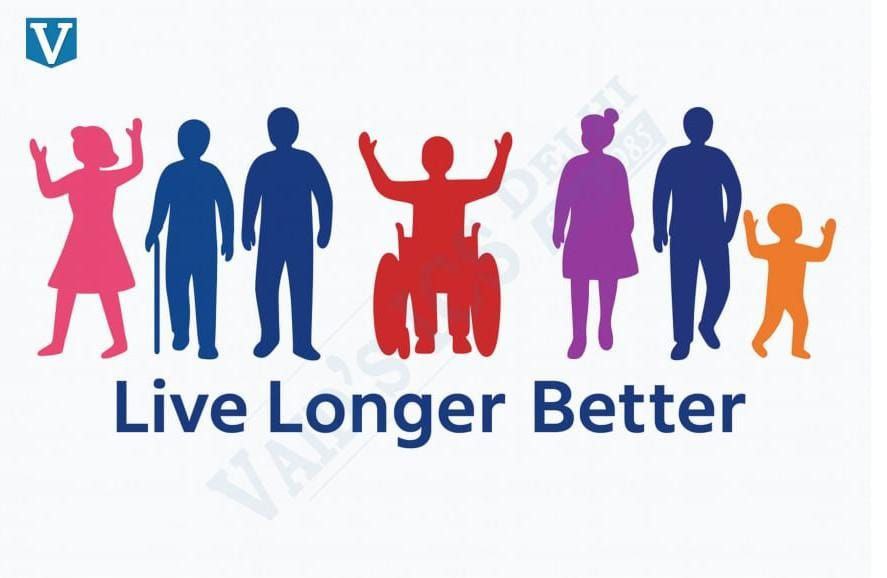Living Longer, Living Better
The Statesman, Oct 1, 2025 Key Arguments
Key Arguments
-
Rising Elderly Population
○ By 2050, 2.1 billion people globally will be aged 60+.
○ This demographic shift increases demand for healthcare, social security, and caregiving support. -
Challenges Faced by the Elderly
○ Inadequate financial resources and poor health insurance coverage.
○ Lack of professional caregiving and systemic neglect in low- and middle-income countries.
○ Mental health issues from loneliness, exclusion, and social neglect.
○ Rising economic burden on working-age populations to sustain elderly care. -
Systemic Gaps in Policy and Support
○ Weak institutional support and limited elderly-friendly infrastructure.
○ Insufficient healthcare interventions and lack of long-term care policies.
○ Ageism, prejudice, and stereotyping limit participation of older persons in society. -
Call for Action
○ Establish universal social and health security systems.
○ Integrate elderly into mainstream society through social engagement and capacity building.
○ Policy shift to treat elderly as contributors, not passive dependents.
Author’s Stance
● Pro-reform and inclusive stance – argues that the elderly are assets, not burdens.
● Calls for urgent policy reforms, institutional support, and anti-ageism measures.
● Tone is cautionary yet solution-oriented, urging action before the challenge escalates.
Possible Biases
● Strong rights-based focus – prioritises vulnerabilities, less on economic feasibility.
● Limited attention to political resistance and cultural variations in elderly care.
● Underplays potential of technological innovations (AI, robotics, telemedicine) in solutions.
Pros
● Highlights urgency of preparing for ageing populations.
● Advocates inclusive, systemic reforms over temporary fixes.
● Addresses critical issues of mental health, neglect, and ageism.
● Calls for multi-stakeholder action – government, civil society, private sector.
Cons
● No detailed economic models for sustaining universal elderly care.
● Limited recognition of intergenerational challenges like pension sustainability.
● Overemphasis on government-led initiatives, less on private/community-driven care models.
Policy Implications
1. GS Paper I (Society):
○ Issues of ageing, demographic transition, intergenerational equity.
2. GS Paper II (Governance & Social Justice):
○ Universal social protection, healthcare access, welfare state responsibilities.
3. GS Paper III (Economy):
○ Fiscal burden of ageing, pressure on pension and insurance systems, rising dependency ratios.
4. GS Paper IV (Ethics):
○ Ethical responsibility towards the elderly.
○ Combating ageism and ensuring inclusivity in social justice.
Real-World Impact
● Without reforms, ageing will strain public health systems, pensions, and families.
● India faces a double challenge – weak healthcare infra + rising dependency ratios.
● Elderly inclusion can foster knowledge transfer, volunteerism, and social capital, reframing ageing as an opportunity.
Balanced Summary and Future Perspectives
The ageing population is a critical socio-economic challenge, demanding urgent reforms. The elderly must be viewed as active stakeholders in society. While the article strongly advocates universal social protection and inclusive policies, it lacks focus on economic sustainability and technological innovation.
Future Outlook:
● Leverage AI, robotics, and telemedicine for elderly care.
● Design sustainable pension and insurance systems.
● Promote intergenerational solidarity and community-driven models.
● Frame ageing as an opportunity for building “active ageing societies” rather than treating it as a burden.
